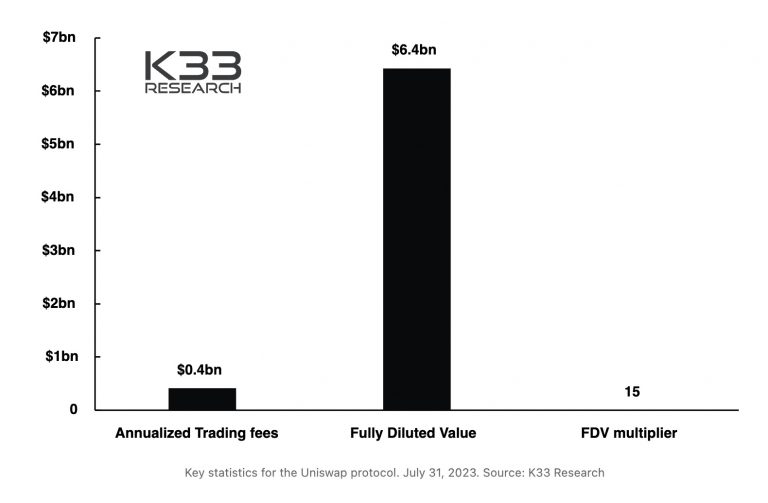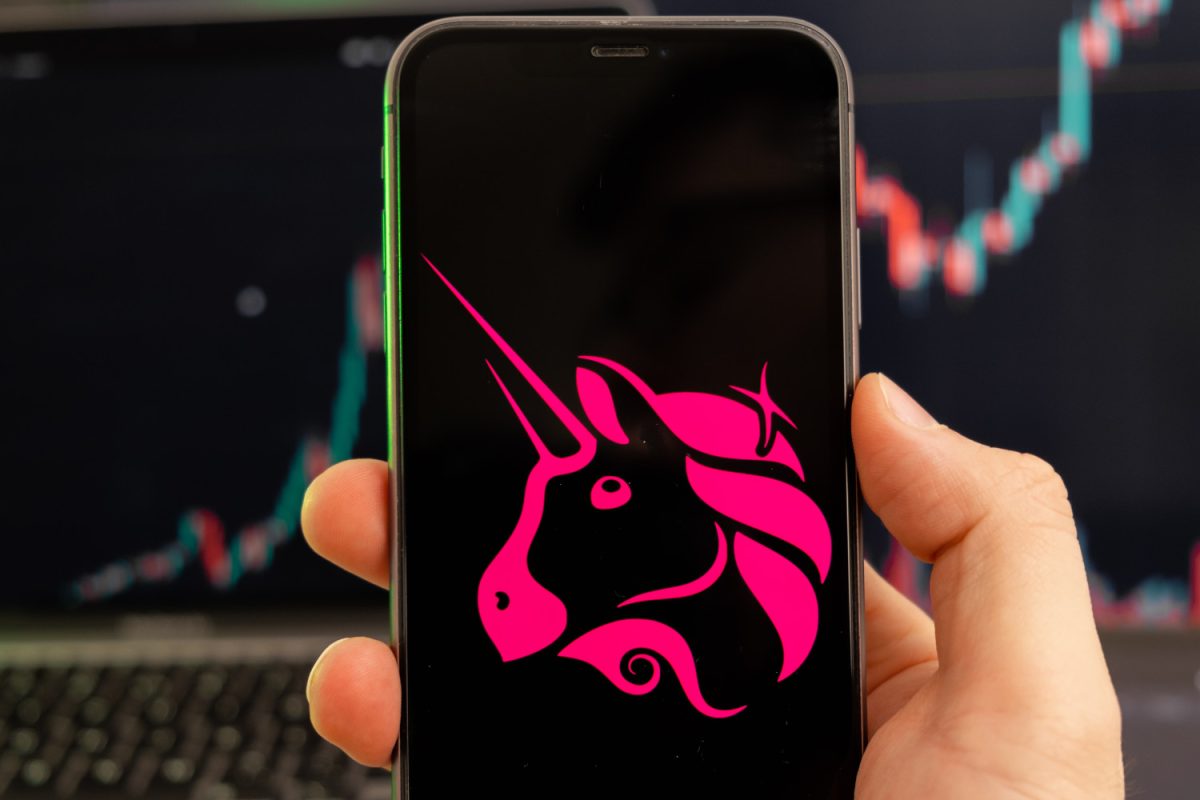K33 Research, a research-oriented institution known as Arcane, made striking statements about the market’s largest DeFi altcoin project.
K33 Research has published an in-depth analysis of the DeFi altcoin market
K33’s findings shed light on why the Uniswap (UNI) platform is struggling to capture a significant share of its impressive $3 billion in transaction fees. UNI was initially touted as a convenient way of distributing fees to its users. However, several obstacles appear in front of this vision.

Distinctive features of Uniswap
In essence, UNI serves as a governance mechanism that allows its investors to have a say in the platform’s operations and future development. Currently, Uniswap operates with a 0.3% fee per transaction. All of these altcoin fees are diverted to liquidity providers.
However, management votes potentially divert fees to UNI holders as dividends. Participants have the power to redefine this fee structure if they wish. Additionally, UNI supply is limited, as is BTC. Similar to the decision-making process in a traditional shareholder setup, majority approval is required to issue more UNIs.
Problems with burning transaction fees
UNI’s primary value proposition revolves around Uniswap’s capacity to share transaction fees. However, K33 Research’s analysis identifies several factors that may hinder the realization of this vision:
- User preference for liquidity: Liquidity has become the lifeblood of DEX platforms. Users always flock to exchanges that offer the best prices and a wide variety of trading options. Uniswap’s popularity is largely due to its impressive liquidity provisions in various token pairs. As a result, the altcoin faces a challenge in providing users with direct incentives to simply stay in the Uniswap ecosystem.
- Competing platforms: The proliferation of DEX protocols mirroring Uniswap’s functions has become more and more common. Preparing such clones is relatively effortless and cost-effective. This leads to fierce competition. These competing protocols attract liquidity providers with high rewards. Thus, they could weaken Uniswap’s position in the market and undermine the UNI price.
- Liquidity providers are in control: The ability to quickly switch between DEX protocols gives liquidity providers a strong advantage in charging trading fees. Equipped with valuable assets, liquidity providers can easily switch to the most profitable platform, putting UNI and Uniswap protocol at a disadvantage.
prospects for the future
Despite obvious obstacles, Uniswap’s standing as a leading DEX protocol remains strong. Meanwhile, the DeFi altcoin set continues to evolve rapidly. On the other hand, UNI finds alternative ways to provide value to its owners. While the potential to capture significant transaction fees is limited, Uniswap adapts quickly to market dynamics. Thus, it maintains its strength with new solutions in the long term.

As a result, the way the altcoin project gets its fair share of transaction fees is fraught with challenges. The complex interplay between user preference for liquidity, ease of protocol replication, and benefits enjoyed by liquidity providers creates a challenging environment. However, innovative strategies to increase its utility are helping it maintain its power. cryptocoin.comAs we have mentioned, the interest of whales also plays an important role in terms of trust.







